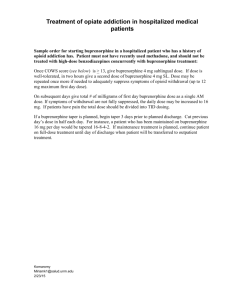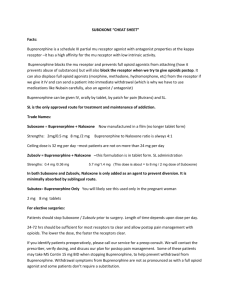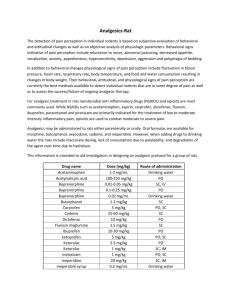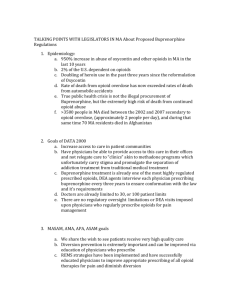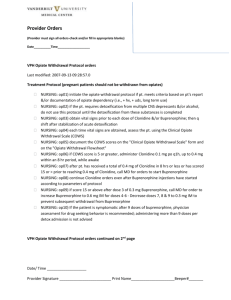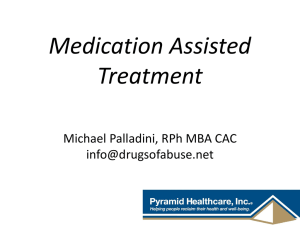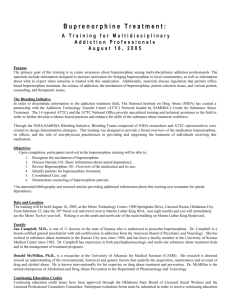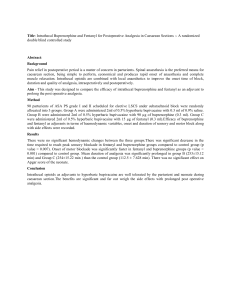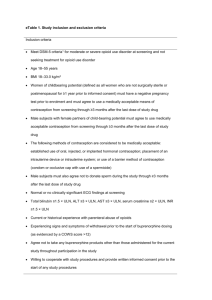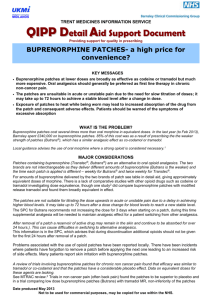Sample #1 – Patient information and consent to treatment
advertisement
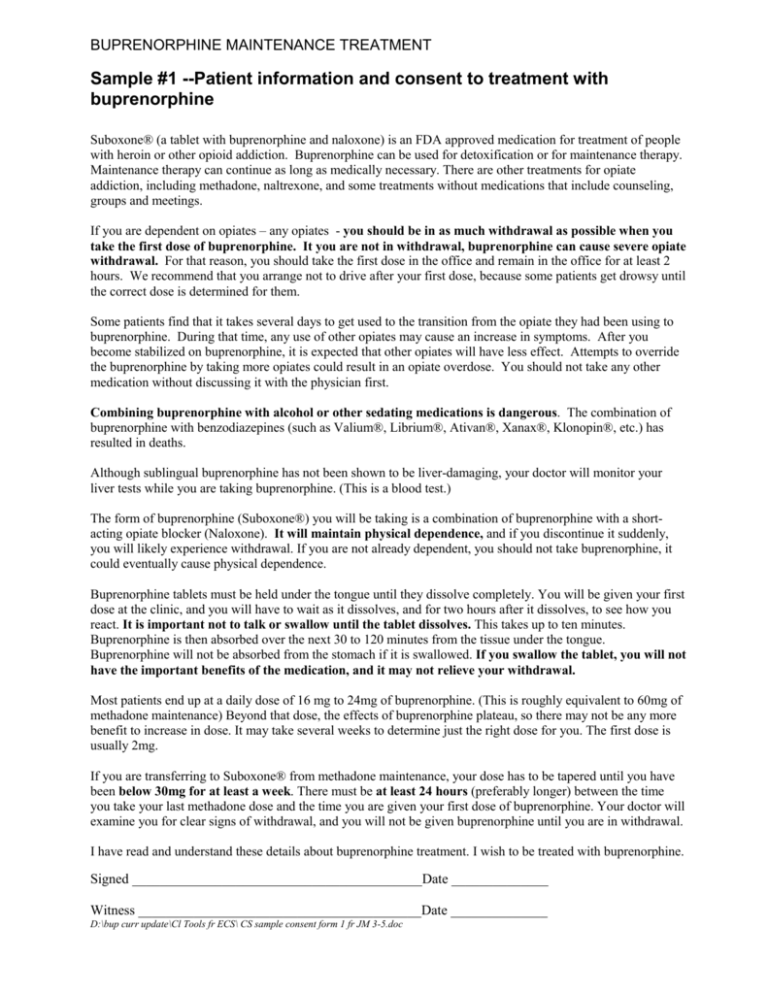
BUPRENORPHINE MAINTENANCE TREATMENT Sample #1 --Patient information and consent to treatment with buprenorphine Suboxone® (a tablet with buprenorphine and naloxone) is an FDA approved medication for treatment of people with heroin or other opioid addiction. Buprenorphine can be used for detoxification or for maintenance therapy. Maintenance therapy can continue as long as medically necessary. There are other treatments for opiate addiction, including methadone, naltrexone, and some treatments without medications that include counseling, groups and meetings. If you are dependent on opiates – any opiates - you should be in as much withdrawal as possible when you take the first dose of buprenorphine. It you are not in withdrawal, buprenorphine can cause severe opiate withdrawal. For that reason, you should take the first dose in the office and remain in the office for at least 2 hours. We recommend that you arrange not to drive after your first dose, because some patients get drowsy until the correct dose is determined for them. Some patients find that it takes several days to get used to the transition from the opiate they had been using to buprenorphine. During that time, any use of other opiates may cause an increase in symptoms. After you become stabilized on buprenorphine, it is expected that other opiates will have less effect. Attempts to override the buprenorphine by taking more opiates could result in an opiate overdose. You should not take any other medication without discussing it with the physician first. Combining buprenorphine with alcohol or other sedating medications is dangerous. The combination of buprenorphine with benzodiazepines (such as Valium®, Librium®, Ativan®, Xanax®, Klonopin®, etc.) has resulted in deaths. Although sublingual buprenorphine has not been shown to be liver-damaging, your doctor will monitor your liver tests while you are taking buprenorphine. (This is a blood test.) The form of buprenorphine (Suboxone®) you will be taking is a combination of buprenorphine with a shortacting opiate blocker (Naloxone). It will maintain physical dependence, and if you discontinue it suddenly, you will likely experience withdrawal. If you are not already dependent, you should not take buprenorphine, it could eventually cause physical dependence. Buprenorphine tablets must be held under the tongue until they dissolve completely. You will be given your first dose at the clinic, and you will have to wait as it dissolves, and for two hours after it dissolves, to see how you react. It is important not to talk or swallow until the tablet dissolves. This takes up to ten minutes. Buprenorphine is then absorbed over the next 30 to 120 minutes from the tissue under the tongue. Buprenorphine will not be absorbed from the stomach if it is swallowed. If you swallow the tablet, you will not have the important benefits of the medication, and it may not relieve your withdrawal. Most patients end up at a daily dose of 16 mg to 24mg of buprenorphine. (This is roughly equivalent to 60mg of methadone maintenance) Beyond that dose, the effects of buprenorphine plateau, so there may not be any more benefit to increase in dose. It may take several weeks to determine just the right dose for you. The first dose is usually 2mg. If you are transferring to Suboxone® from methadone maintenance, your dose has to be tapered until you have been below 30mg for at least a week. There must be at least 24 hours (preferably longer) between the time you take your last methadone dose and the time you are given your first dose of buprenorphine. Your doctor will examine you for clear signs of withdrawal, and you will not be given buprenorphine until you are in withdrawal. I have read and understand these details about buprenorphine treatment. I wish to be treated with buprenorphine. Signed __________________________________________Date ______________ Witness _________________________________________Date ______________ D:\bup curr update\Cl Tools fr ECS\ CS sample consent form 1 fr JM 3-5.doc
